
CATFISH Striped Talking Catfish Willowbrook Nursery and Garden Centre
Both sexes of the Striped Raphael catfish look pretty much identical, although the males can be darker in color, and the females tend to be more of a cream color between the stripes, whereas the males are yellowish tan. Platydoras armatulus is an armored catfish that has a set of spines running along the length of its lateral line.

Striped Raphael Catfish (Platydoras armatulus) Aquatic Arts on sale today for 8.99
The striped Raphael catfish is a catfish of the family Doradidae. It may also be called Southern striped Raphael, talking catfish, chocolate doradid, chocolate catfish or thorny catfish. It is native to the Amazon, Paraguay-Paraná and lower Orinoco basins in South America. This peaceful, nocturnal species is a popular aquarium fish due to its pleasant temperament and curious nature.

Striped Raphael Catfish A Complete Care Guide For This Amazing Fish
The Striped Talking Catfish is a peaceful fish which will scavenge amongst the substrate. Provide a few hiding areas, and if possible, a sandy substrate. The fish is omnivorous and should be provided with a variety of foods. The name comes from the fishes ability to make 'grinding' noises.

Striped Raphael Catfish aka Chocolate Talking Catfish The Fish Room TFR
Introduction To The Talking Spotted Catfish The black Spotted Raphael Catfish ( Agamyxis pectinifrons) is a hardy and easy-to-care-for species that makes an ideal option for mid to large-sized freshwater and planted aquariums. Here's a few quick facts about these vocal and friendly catfish:

Striped Raphael talking catfish YouTube
Native to South America, the Striped Raphael Catfish is found in a variety of habitats, including the Orinoco basin in Colombia and Venezuela, the Essequibo river in Guyana, and the coastal drainages of Suriname and French Guiana. It's also a common sight in the Amazon basin in Peru, Bolivia, and Brazil.
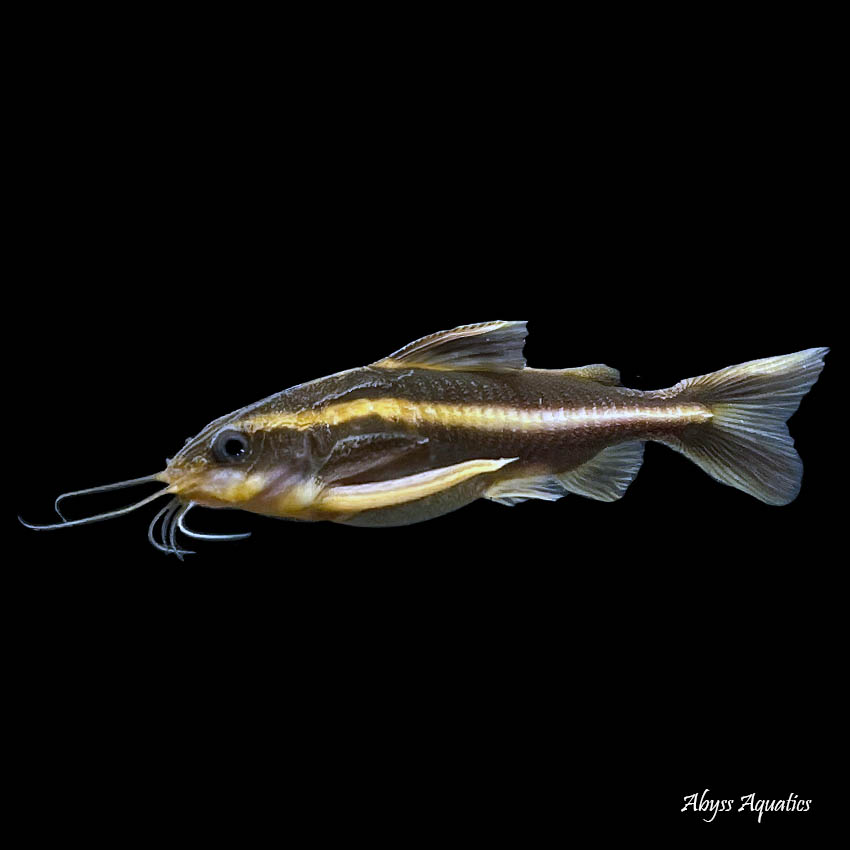
Buy Striped Raphael Talking Catfish Fast, Professional Service
What Do Striped Raphael Catfish Eat? (Diet & Foods) By Harold Miller The Raphael catfish are very easy to care for and are considered to be the species that beginners might be looking for to start with. They are considered to be omnivorous feeders. Proteinaceous or meaty foods make up a huge portion of their diet.
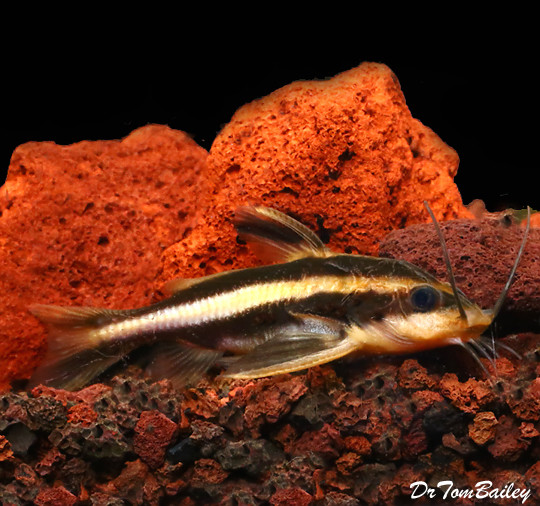
Premium Striped Raphael Talking Catfish, 2.5" to 3", tank raised
The Striped Raphael Catfish, scientifically known as Platydoras armatulus, is a popular fish in the aquarist world due to its unique physical characteristics and docile behavior. Known by numerous common names such as the Southern striped Raphael, talking catfish, and chocolate doradid, this nocturnal freshwater fish is native to the Amazon.

Striped Raphael Catfish (Platydoras armatulus) Aquatic Arts on sale today for 8.99
The striped Raphael catfish ( Platydoras armatulus) is a catfish of the family Doradidae. It may also be called Southern striped Raphael, talking catfish, chocolate doradid, chocolate catfish or thorny catfish. [1] It is native to the Amazon, Paraguay - Paraná and lower Orinoco basins in South America. [2]

Keeping Striped Raphael Catfish A Complete Beginner's Guide
9.6″ (24cm). Captive specimens of this size are rare, but it's easily capable of reaching 6″ (15cm). Aquarium Size Top ↑ It's not very active but due to its potential size will still need a tank measuring at least 48″ x 12″ x 12″ (120cm x 30cm x 30cm) - 108 litres.
My Striped Talking Catfish is loving the camera. r/aquarium
Updated: October 22, 2022 132.7K views Striped Raphael Catfish are great freshwater species that often overlooked by many aquarists. But trust us, there's a lot to like about this species. These fish have a really neat look and are super easy to care for. They're also a ton of fun to watch too!

Striped Raphael Catfish (Platydoras armatulus) Aquatic Arts on sale today for 8.99
Description Care The Striped Talking Catfish is a secretive species known from slow-moving or still waters where it remains hidden under roots, rocks, and plant thickets during the day. Active by night, it emerges to feed by digging through the sediment, consuming various organic debris, insect larvae, and small benthic invertebrates.
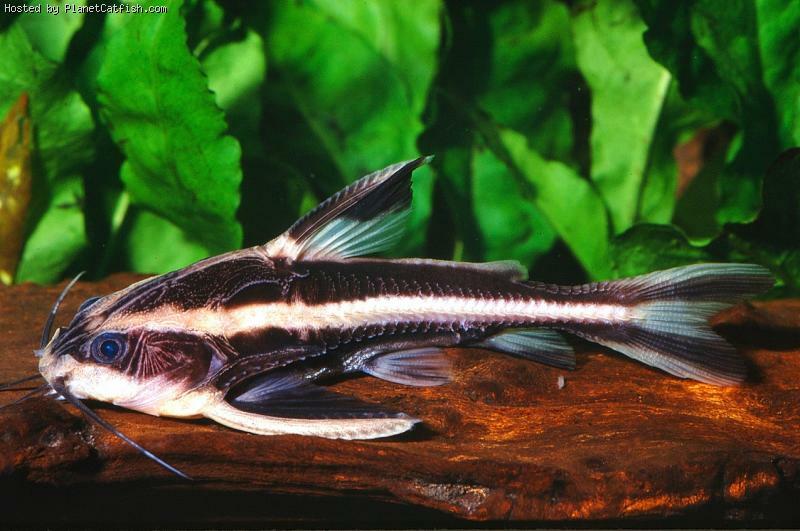
Striped Raphael catfish Skrautfiskar.is
Introduction. The Striped Raphael Catfish (Platydoras armatulus) enjoys widespread popularity in the realm of aquarium keeping, owing to its amiable disposition and inquisitive nature. As primarily nocturnal creatures, these Catfish tend to engage in exploratory behaviour during daylight hours once they acclimate to their aquarium environment.

Striped Raphael Catfish (Platydoras armatulus) Aquatic Arts on sale today for 8.99
Tank Size. The recommended minimum tank size for a striped raphael catfish is 30 gallons. You might be able to get away with a 20 gallon tank if you're keeping a single fish or a very small school but we don't recommend it. These fish are relatively active and will appreciate the extra space to swim around.
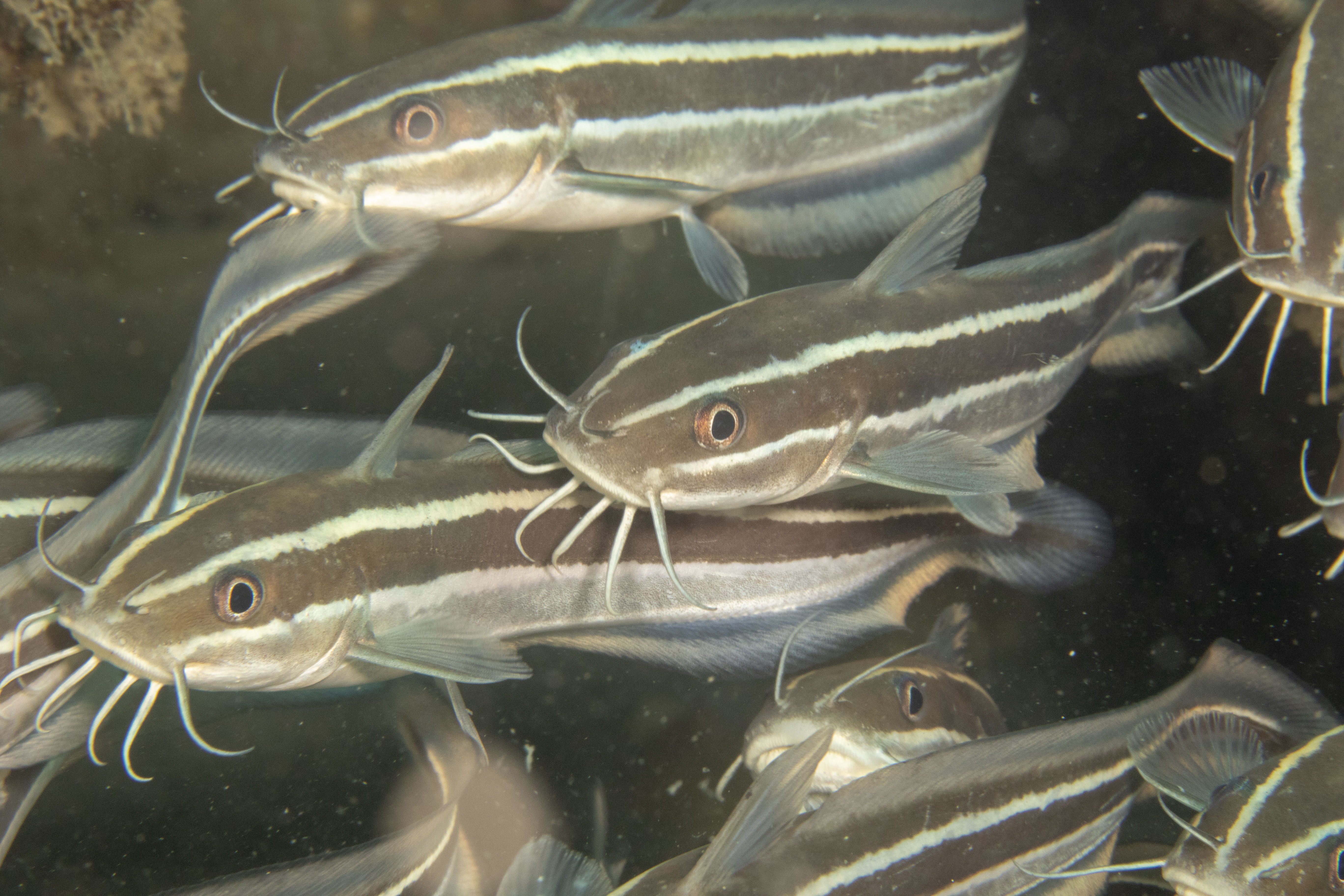
Striped Catfish ktuli photography
Striped Raphael catfish (lat. Platydoras armatulus) is a popular freshwater tank fish of the family Doradidae. The fish have armor, they are enduring and can produce various sounds - all these features attract aquarists. But there some peculiarities in keeping catfish and you'll find out about them from our article. Contents [ hide]

Raphael Catfish Care Guide For The Striped Catfish Aquariadise
Food & Diet Striped Raphael Catfish are omnivorous, opportunistic feeders who will eat almost anything they can find. This means that they eat meat as well as plant matter. In the wild, Striped Raphael Catfish feed on crustaceans, mollusks, and plant debris that settle at the bottom of the substrate.

Striped Raphael Catfish (Platydoras armatulus) Aquatic Arts on sale today for 8.99
The Striped Raphael catfish has a unique appearance with black and white stripes on its body; it is an armored catfish with sharp dorsal fins and spines, so handling it requires caution. It's recommended to provide them with a well-balanced diet, including sinking catfish pellets, live or frozen food, and plant matter.